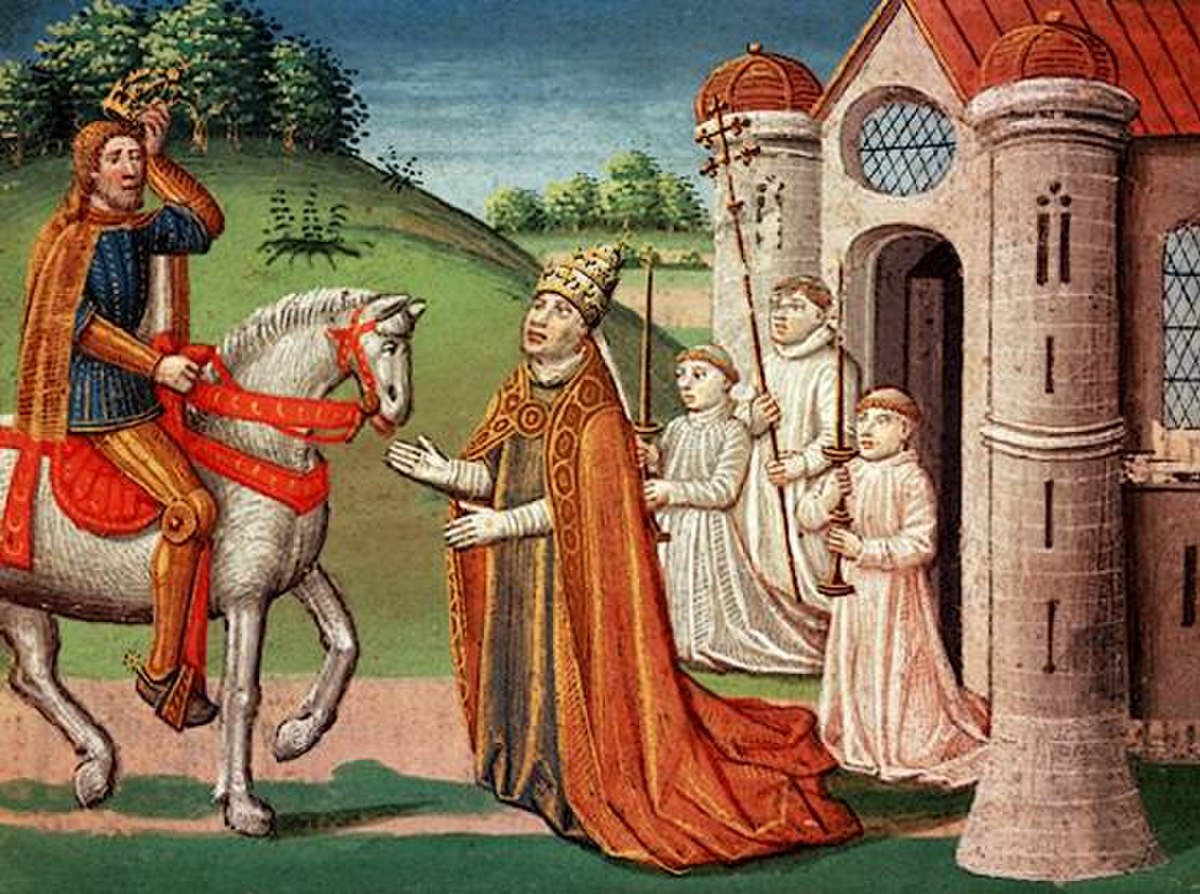
Conquest of the Lombard kingdom
Pavia, Province of Pavia, ItalAt his succession in 772, Pope Adrian I demanded the return of certain cities in the former exarchate of Ravenna in accordance with a promise at the succession of Desiderius. Instead, Desiderius took over certain papal cities and invaded the Pentapolis, heading for Rome. Adrian sent ambassadors to Charlemagne in autumn requesting he enforce the policies of his father, Pepin. Desiderius sent his own ambassadors denying the pope's charges. The ambassadors met at Thionville, and Charlemagne upheld the pope's side. Charlemagne demanded what the pope had requested, but Desiderius swore never to comply. Charlemagne and his uncle Bernard crossed the Alps in 773 and chased the Lombards back to Pavia, which they then besieged. Charlemagne temporarily left the siege to deal with Adelchis, son of Desiderius, who was raising an army at Verona. The young prince was chased to the Adriatic littoral and fled to Constantinople to plead for assistance from Constantine V, who was waging war with Bulgaria.
The siege lasted until the spring of 774 when Charlemagne visited the pope in Rome. The pope granted him the title patrician. He then returned to Pavia, where the Lombards were on the verge of surrendering. In return for their lives, the Lombards surrendered and opened the gates in early summer. Desiderius was sent to the abbey of Corbie, and his son Adelchis died in Constantinople, a patrician. Charlemagne was then master of Italy as king of the Lombards.
In 776, Dukes Hrodgaud of Friuli and Hildeprand of Spoleto rebelled. Charlemagne rushed back from Saxony and defeated the Duke of Friuli in battle; the Duke was slain. The Duke of Spoleto signed a treaty. Northern Italy was now faithfully his.
